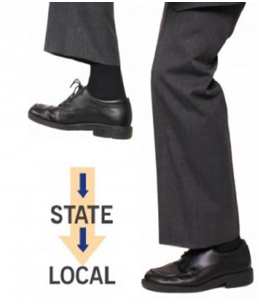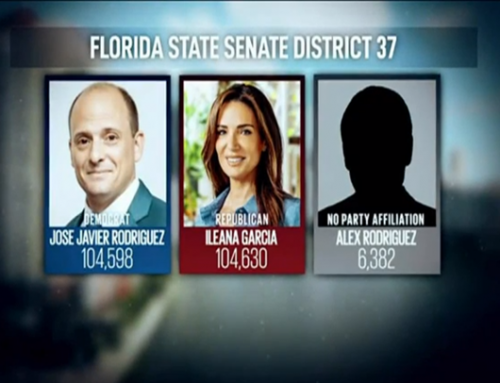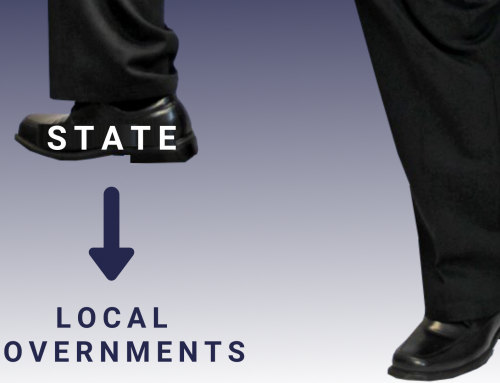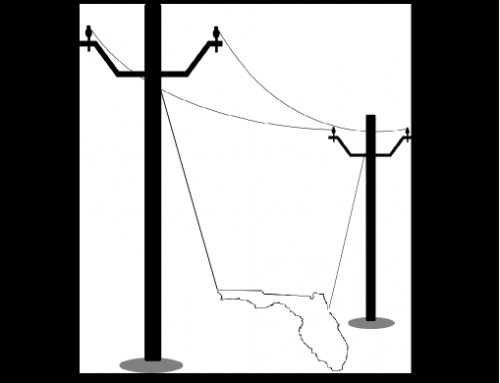January 2020
Executive Summary
For several years a revolution has been underway in the relationship between states and their local governments. In many states, including Florida, legislative majorities, particularly Republicans, are passing legislation that weakens the home rule powers of cities and counties.
The states’ mechanism is preemption, the legal doctrine that empowers states to override local governments when they differ. Preemption has evolved from a practice that involved narrow issues of regulation and was designed to align state and local laws to make sure there were no inconsistencies. Now new, more aggressive types of preemption practiced by states erode the power of local governments over vast areas of law and regulation. Although Democrats have, and continue to, use preemption to block actions on the local level, it has become a strategy for Republicans who win the governorship and majorities in the state house and senate. Republican majorities in some states, including Florida, admittedly use preemption to punish local governments for enacting progressive legislation.
The new forms of preemption include punitive provisions, which hold local governments and officials liable for violating state preemption legislation. In addition to blocking local governments’ action, punitive preemption subjects local governments and officials to penalties such as fines, damages and removal from office.
The use of punitive preemption in Florida is now at issue in an appellate court in Tallahassee. The case in question involves punishments inflicted by the Legislature in 2011 for any violation of the state’s “occupying the whole field”, or preemption, of firearms regulation. It results from suits filed by cities, counties and local officials after the Parkland High School shooting and challenges the 2011 punitive revisions to the 1987 firearms preemption law.
The increased use of the preemption strategy in Florida comes with consequences. Preemption interferes with voters’ ability to determine the direction of their own communities and receive adequate responses to local conditions. Government action is moved from the entity closest to the people – local governments – and empowers the Legislature in Tallahassee. Preemption can block local ordinances that reflect a community’s will to help women, people of color, LGBTQ people and those in poverty. And punitive preemption laws, if determined to be constitutional, would change the type of candidates who run for office, deterring qualified people from seeking election to local positions.
Special-interest groups and the conservative American Legislative Exchange Council often find agreeable legislatures for their agendas. They attain their goals in part by using cookie-cutter legislation passed in many states.
The use of preemption in the states, including Florida, is rising. No indications point to a decrease in the practice. Public education and the ballot box are the avenues available for slowing the increase in legislatures’ appetite for preemption.
Key Findings
• Home rule powers granted to municipalities and counties do not protect local governments against aggressive preemption of their actions.
• Traditionally preemption was used to align state and local laws to make sure there were no inconsistencies. New types of powerful preemptions – called maximum preemption, blanket preemption, nuclear preemption and super-preemption – are now often used to void or block local government actions.
• Increasingly, super-preemption laws that hold local governments liable for action in specific policy areas are being used to punish or threaten punishment of local officials.
• Preemption is not always “bad”. “Bad” preemption deters policy innovation, limits local governments’ ability to make policy or undermines protection of individual rights.
• New preemptions are driven by partisan, ideological or special-interest motivations.
• Some state preemptions have been stimulated by corporate interests to block regulations they dislike.
• Some Republicans have expressly acknowledged that the use of preemption is a strategy to block progressive local actions and to punish “rogue” local governments.
• Aggressive use of preemptions has many negative consequences. Preemptions interfere with local residents’ ability to determine the direction of their communities. They block local attempts to add protections for LGBTQ individuals, black residents and the poor. They prevent local governments from enacting strong environmental and community health measures. Use of punitive preemption changes the kind of candidate who would serve under punitive laws.
• Use of preemption as a legislative strategy is increasing in Florida.
• Bills containing multiple preemptions are becoming common in the Florida Legislature.
• Business-funded corporate interest groups are using their considerable political influence, gained through campaign contributions and lobbying expenditures, to push preemption legislation in the Florida Legislature.
Policy Options
• Require two-thirds or super-majority vote for passage of legislation that preempts local government authority (similar to what is required for local unfunded mandates and public record exemptions).
• Establish by rule or law a single-subject requirement for preemption legislation.
• Prohibit any fines or punitive liabilities for local governments that violate legislative preemptions.






